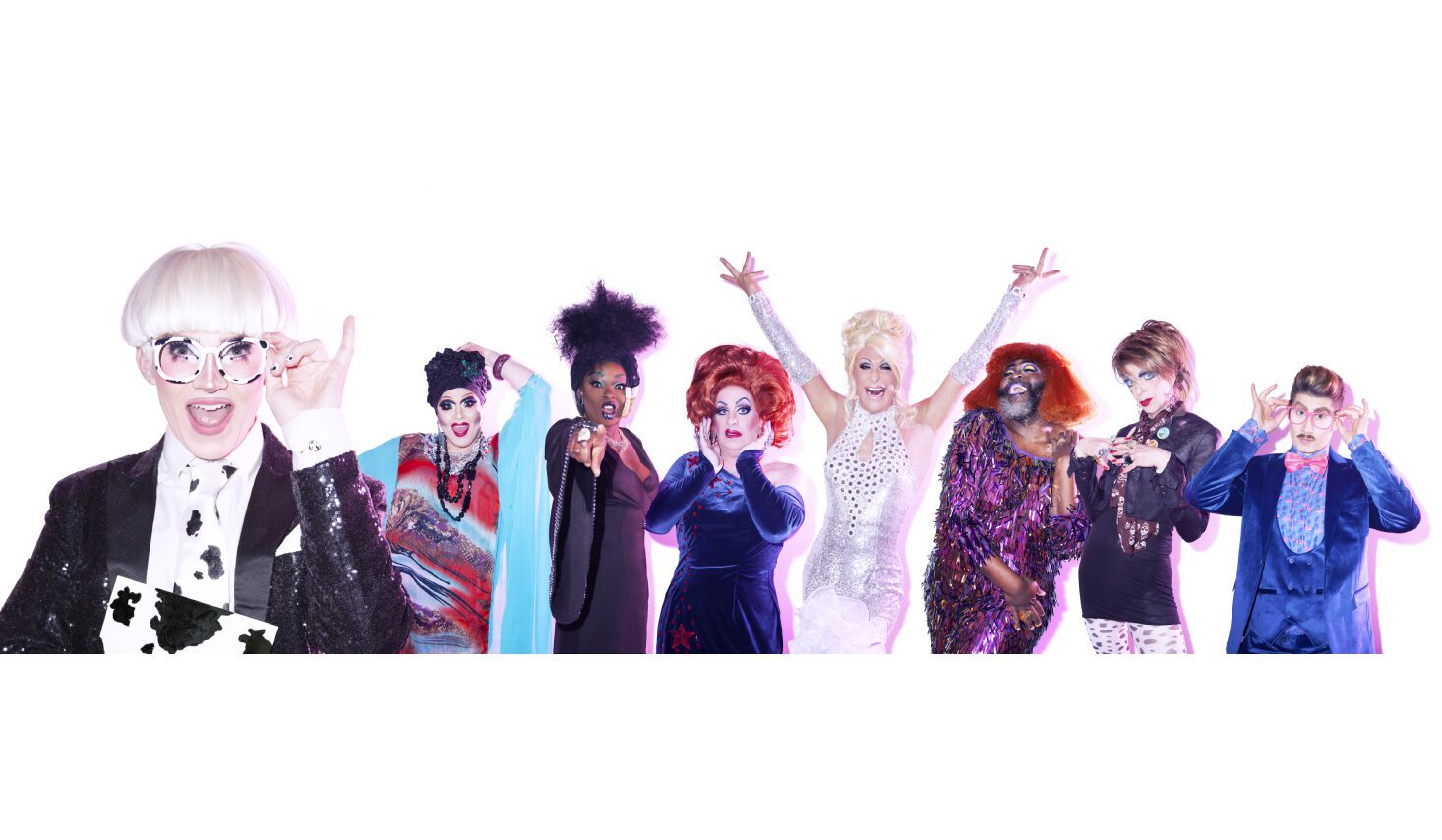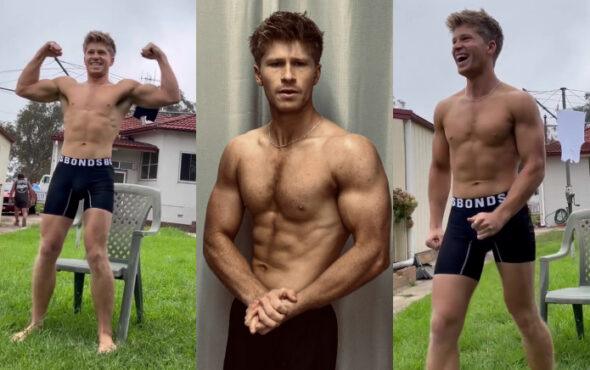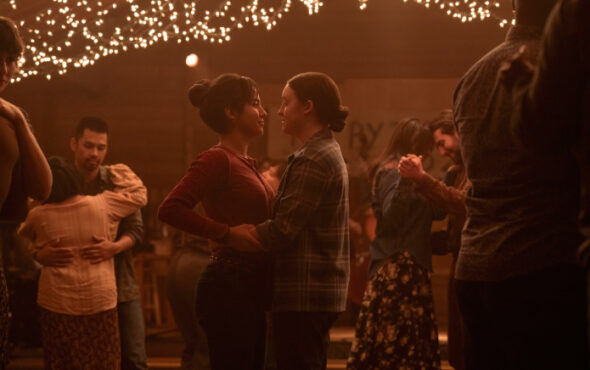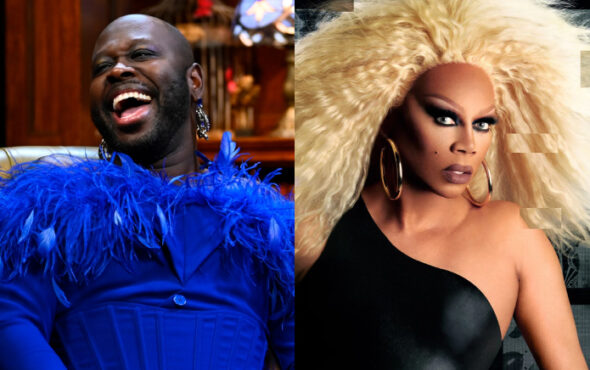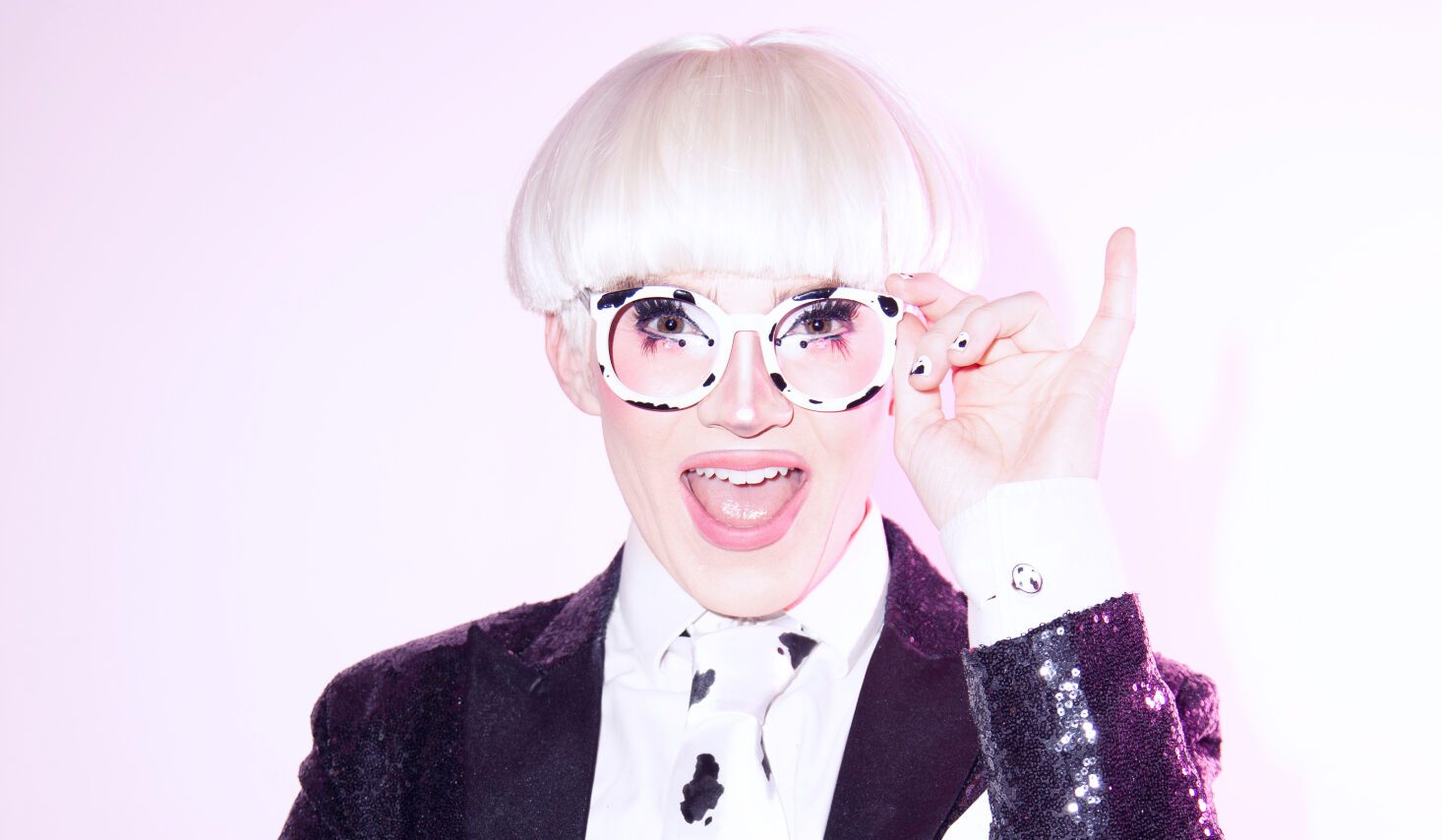
Well, this looks super exciting! Drag Prince Alfie Ordinary has announced a new web series, Living Legends, which will launch on 15 November. The series will feature one-on-one interviews with seven pioneers of British drag: Le Gateau Chocolat, Lola Lasagne, David Hoyle, Adam All, Son of a Tutu, Holestar and Dave Lynn. Filmed earlier this year during lockdown – with the support of Arts Council England and Brighton Pride – the interviews focus on those who have innovated drag over decades; changing and developing the art form and queer protest through their work.
Ahead of the web series launch we grabbed a quick chat with Alfie, as well as a sneak peek at a couple of the episodes. We’ll keep it brief so we’re not giving spoilers: Adam All gives us a flavour of their first few gigs and a fascinating insight into the history of drag kings, while Olivier Award-winning artist Le Gateau Chocolat talks us through a many and varied career, and the importance of saying yes – even if that means working shows in London and Edinburgh at the same time. If these two episodes are anything to go by, we’re in for a real treat when the whole series launches! We caught up with Alfie to find more about the series and what viewers can expect when Living Legends arrives later this month…
What’s the concept for Living Legends?
It all started during lockdown: one of the queens I interviewed, they would go for long walks around Brighton and they would take photos of buildings that used to be queer venues or drag bars. And there would be a long post just about the history of the place, the shows there, who used to run it – really interesting to read. That was Lola Lasagne; it was just really interesting to hear some history. I think it’s easy to forget that things existed long before the present day. During lockdown I wanted to do something. I thought I’d quite like to gather these stories together somehow. And then I saw a rumour list of the cast of RuPaul’s Drag Race UK Season 3 and I was like… these queens are getting younger and younger! The two things came together, I was like, it might be fun to hear some stories from the past of drag, because there’s such a big focus on the future of drag. Life experience informs your drag, the type of performer that you are and the type of stories that you tell, it all comes back to what you’ve been through. I’ve been living in Brighton for about seven years now and I absolutely love and adore and respect the queens. The ones that run the scene are the older queens, they’ve been doing it for years, they’ve learned lots of tricks and amazing stage craft. But they’ve also got so much life experience to draw upon that makes their shows great. I really wanted to tap into that – some of them have been doing drag 30, 40, 45 years, longer than I’ve been alive!
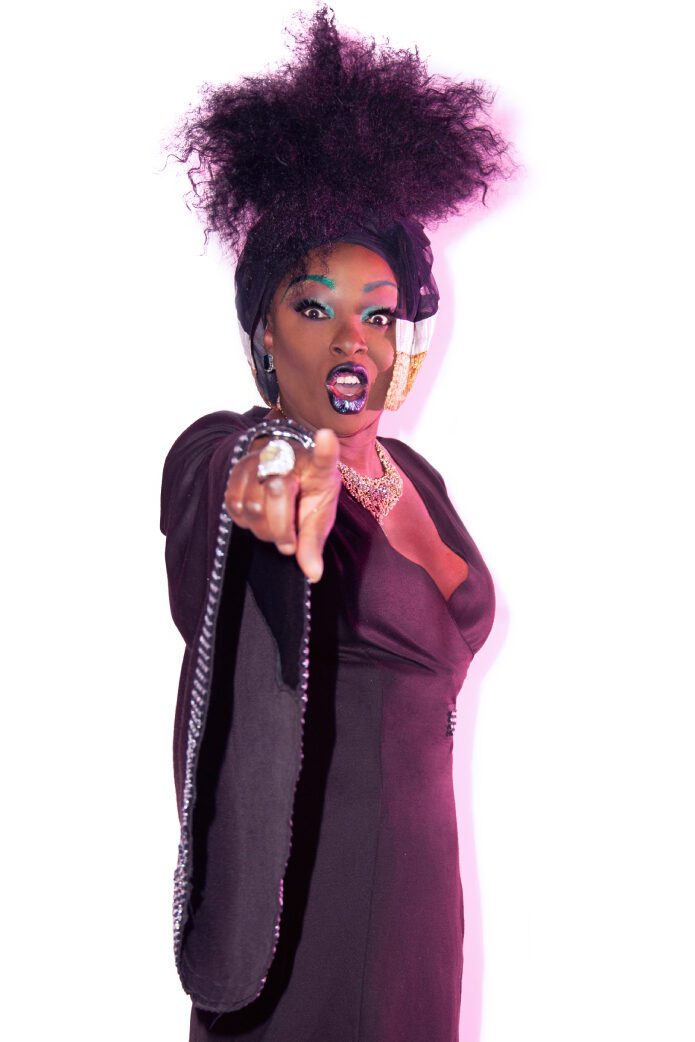
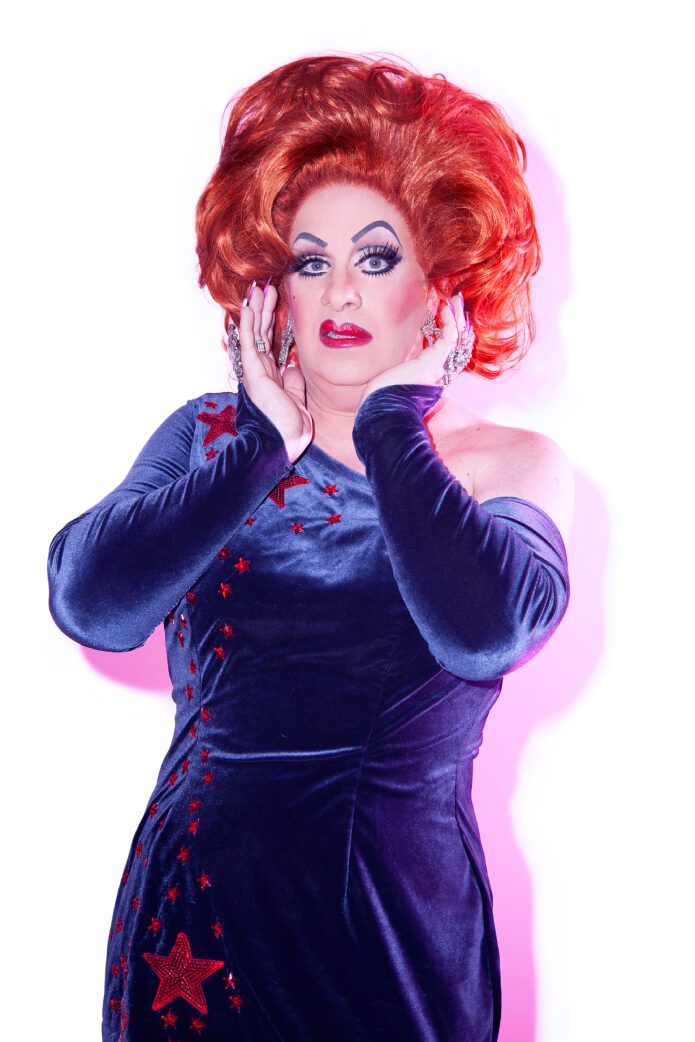
How did you choose the seven artists that you wanted for the show?
It was all filmed during lockdown, so a lot of them are fairly local, it was filmed at Brighton Pride’s new Ironworks Studios which is a really gorgeous place. Gateau, Lola, Dave are all in Brighton… it was people that I thought would have interesting stories to tell. Le Gateau Chocolat is an incredible opera performer who travels the world doing gigs at the Sydney Opera House, and the Royal Opera House in London, and that’s a story to tell. Son of a Tutu – she was working in the banking industry and only came to drag in her 40s and I wanted to find out about that. I also wanted people who are inspiring! It’s called Living Legends, so it’s people who I think have gained legendary status one way or another.
You’ve spoken about wanting to see a diversity of age – why is this so important?
There’s so much to be gained from life experience; however inspiring it is to have really young people doing drag, if they’ve not lived their life yet what stories are they going to tell through their drag? I also think it’s important to give some time, space and energy towards older people. It’s not just younger people who enjoy drag. All types of people go to these shows. Drag is a commentary on society and the culture that we live in – these people have lived through some incredible times, we touch on the AIDS crisis, Section 28, these big moments and these people lived through them. When I go to drag shows it feels a bit like I’m at church, they’re gathering people together and there’s a real sense of community. In this community, representation is really important, there’s lots to be learned from the older queer community. There’s a nice moment in Dave Lynn’s interview, where I say ‘you’ve seen lots of change in 45 years, how’s that been?’ And this big smile comes across his face and he’s like ‘it’s been great!’ He’s lived through things like gay marriage becoming legal, seeing the way that Prides have changed, and generally LGBTQ+ rights – or just human rights, we can call them! – have been changing for the better. It’s very easy to forget, especially if you’re young, it hasn’t always been sunshine and roses and Drag Race on TV.
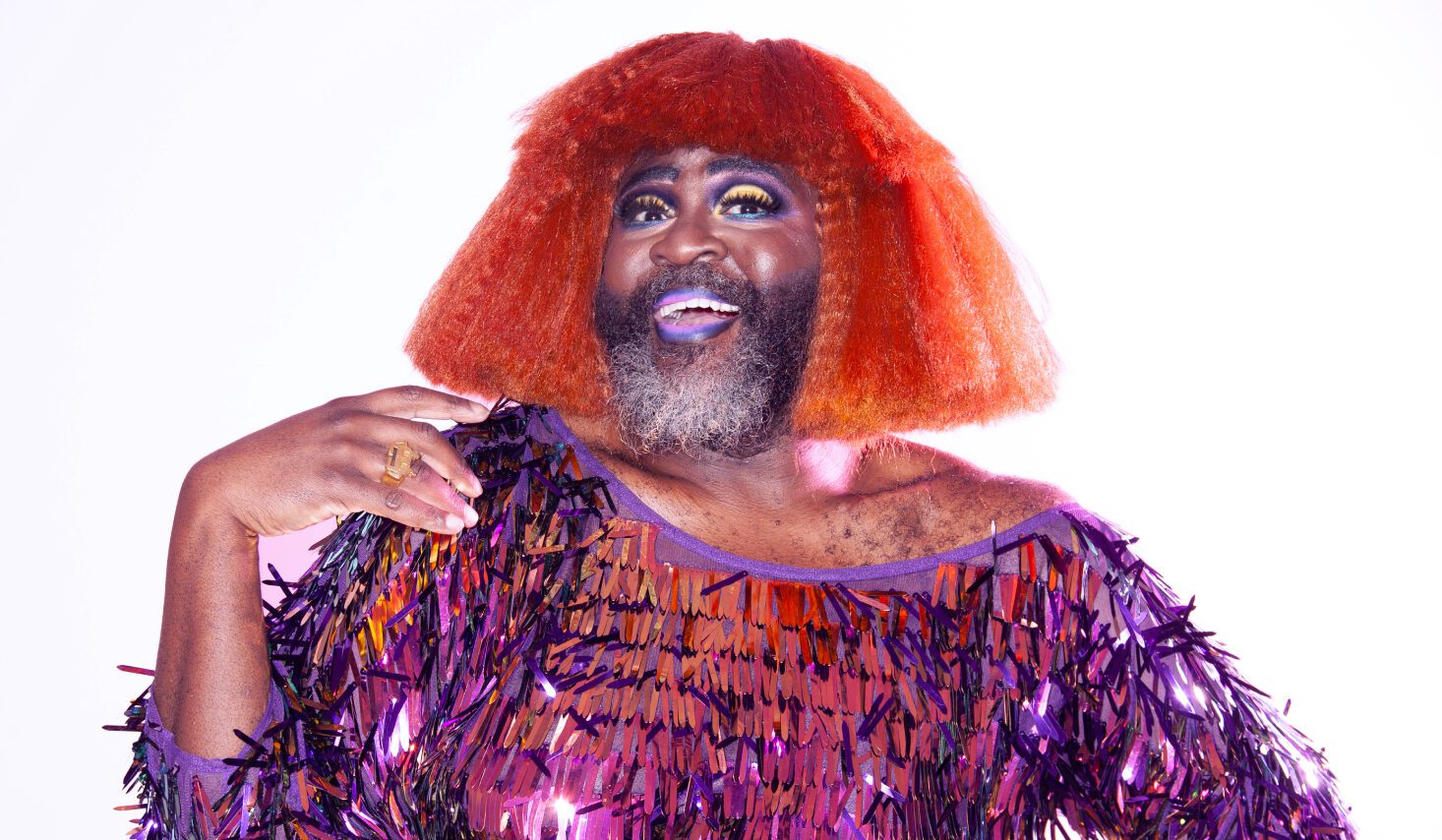
Do you have plans to do more episodes, and if so do you have more artists you’d like to work with in the future?
The list is endless! This is the first Arts Council project I’ve ever done so I was going into this as a complete novice, I’ve never done TV interviews before so I was learning on the job. I would like to think of this as a pilot season and hopefully we can do another one, or another two, there are so many stories to be told; each story of drag is unique and special in its own way and I would love to be able to document it. Essentially I want to create an archive of British drag. Maybe even beyond that! I’d love to speak to drag performers from around the world and have many different types of drag. We’ve got the internet and hopefully it’s going to stay there forever – I’d love it if in 50 years’ time someone goes ‘oh what was drag like in the ‘80s?’ and then they can go on Google and there’s an interview with a drag performer who was there in the ‘80s and doing their thing. Each performer that I met had a different approach to drag, they’d done different things. Like one was talking about activism, one was talking about television and queer representation in the media, we spoke to a drag king and we spoke about what it’s been like for kings over the years, one was talking about the way drag brings communities together, there was one speaking a lot about racism within the queer scene and the drag scene. All these different things naturally came about, just talking to different people with different life experiences.
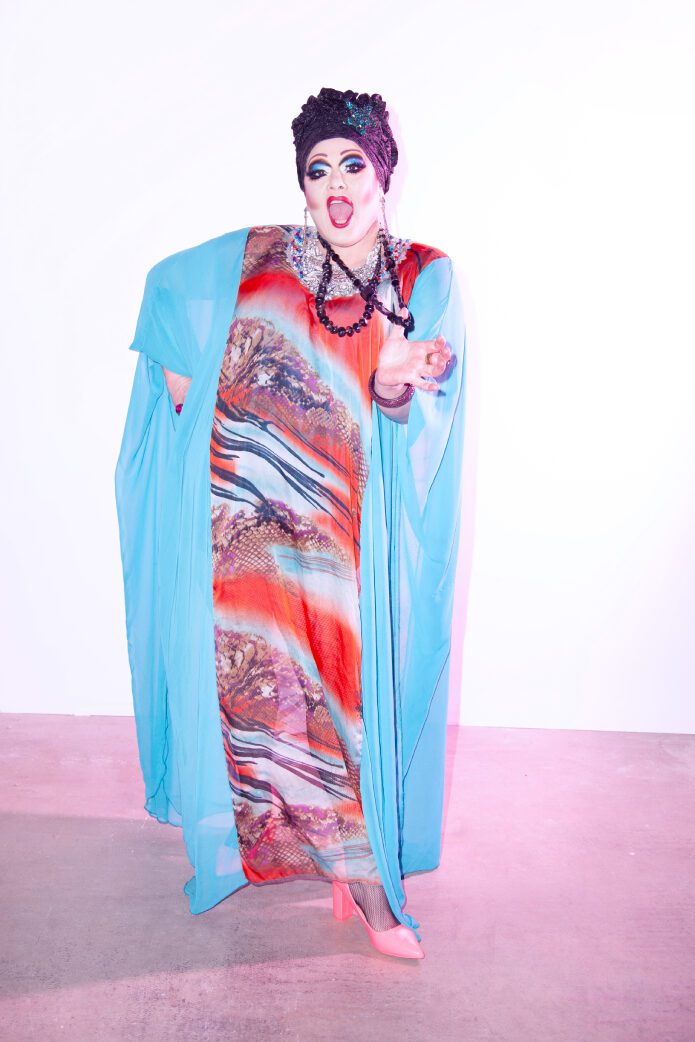
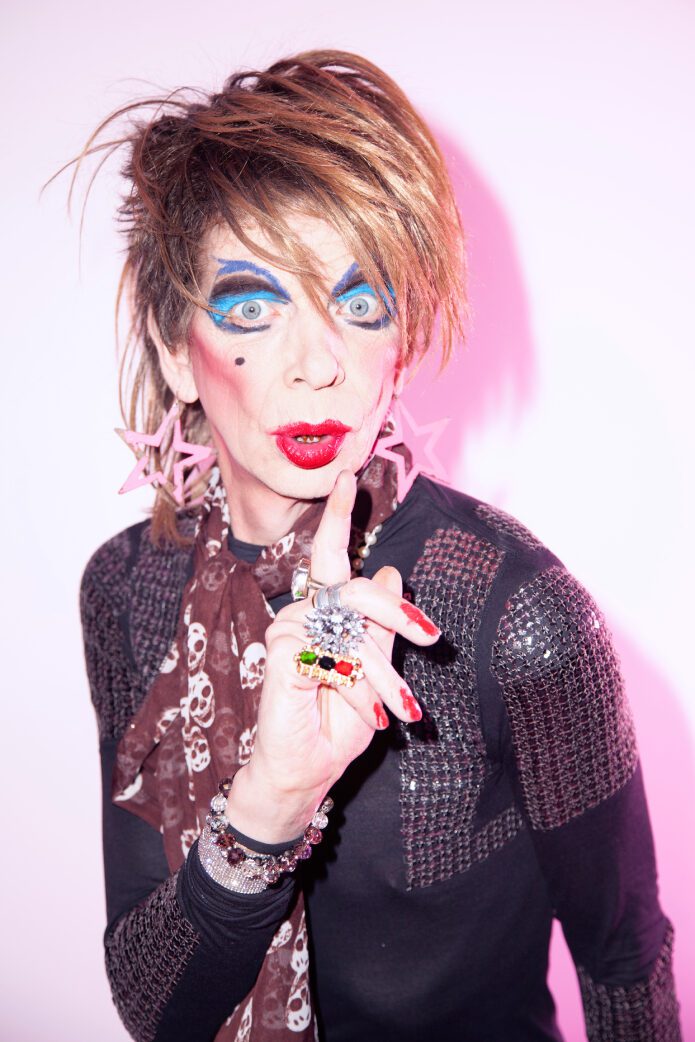
COVID restrictions permitting – would you like to take Living Legends on the road?
I would love to do ‘Living Legends Live’! Whether that’s in an interview format or just a variety show with the drag performers that we’ve got on this show. The possibilities are endless, I would love to have a live audience as well as it being recorded because drag performers play up to an audience, so when it’s just me and two camera people… someone tells a joke and then there’s just this quiet little “haha!” I would absolutely love to do this with a live audience or in a show format. It almost happened at Brighton Pride this year but we didn’t know if Covid restrictions were going to lift so I ended up doing a clown show instead!
In terms of your own drag – a lot of people recently shared your post about playing Tinky Winky. Why is this character important to you?
I’ve been doing Tinky Winky for years, probably about five years. I was around in the ‘90s, really into the Teletubbies and I remember the outrage that Tinky Winky’s handbag caused. I might be exaggerating but it felt like front page news, people were like ‘this is terrible, why are we teaching this to our kids, this is perverted, this is the gay agenda’ and I still feel that effect. It taught me that being queer should not be for children, like a dirty sordid secret, which essentially is just homophobia. Which I am – we are – now trying to unlearn. I’m now trying to take that outrage and make Tinky Winky truly outrageous. Make him camp – if you think Tinky Winky is gay, you’ve not seen him in 2021! I’ve got some lovely red heels, my little handbag, nails painted, the curvaceous body… it’s a full drag version of this character and honestly audiences really respond well, they’re like ‘yasss Tinky Winky! Live your best life!’ I remember just thinking it was ridiculous, that conversation back in the ‘90s. These are aliens, who says Tinky Winky can’t have a handbag? Who says Tinky Winky is even a man? These are purple fluffy aliens with televisions on their stomachs. Why are people so offended? So I wanted to really push that, just how gay can Tinky Winky be? Turns out – pretty damn gay!
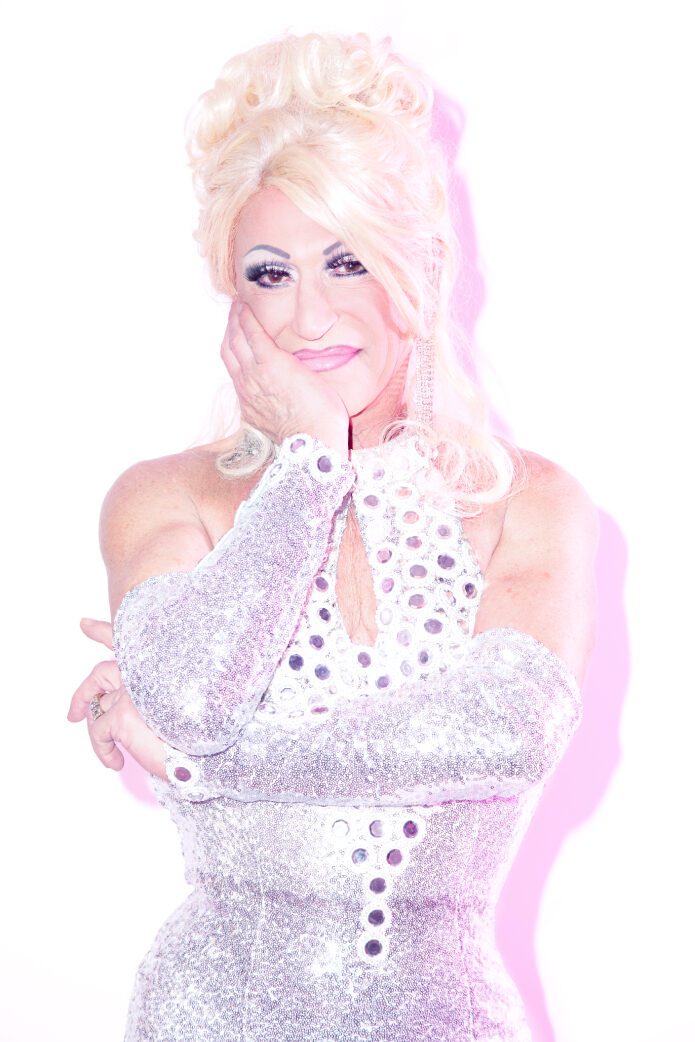
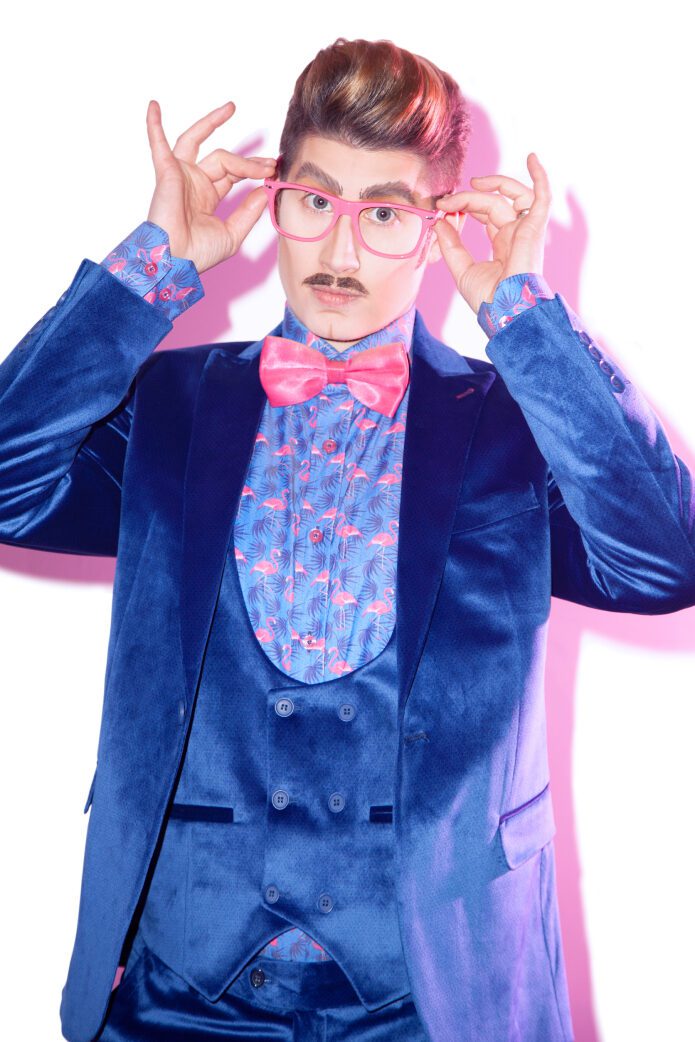
How have you been through the pandemic?
At the start I remember crying in the kitchen, like, I don’t know what’s going on! I definitely had a small meltdown because I was trying to grow tomatoes from seed and they didn’t grow and I was like ‘No! Nothing’s going right any more!’ I remember doing some online shows on Facebook and the way that people were supporting performers, and they were coming back every week – they were tipping money which was great because that literally helped keep a roof over my head which was lovely. And when shows started back, people were really supportive in terms of knowing that it was going to be a bit different, I remember being very stressed at the idea of doing any sort of show. Obviously I wanted everyone to have a fun time! And sing along! And get up and dance and talk to each other! But none of that could happen, so we had to adapt as drag performers and we had to learn so many things. Suddenly we had to become technicians who could deal with sound and video and internet connections and my bedroom became a home studio for a while. And then we had to rewrite our shows and material to make sure people weren’t encouraged to sing along. I think as performers we’ve had to adapt – if you can’t then what can you do.
And how are things now?
I don’t know if it’s a combination of lockdown ending and Drag Race fever happening but I’m the busiest I’ve ever been at the moment! Fingers crossed live performance can carry on happening. The thing that was lovely to see about the whole situation was people managing to come together with these online shows, it wasn’t necessarily about people coming to watch, it was about people talking in the chat and the messages – it was almost like being back at the Queens Arms and seeing the locals for a catch up and watching the show, which is lovely. And now it’s come back even stronger. The future’s bright, the future’s drag!
Alfie Ordinary’s Living Legends debuts on 15 November. More information can be found here.
